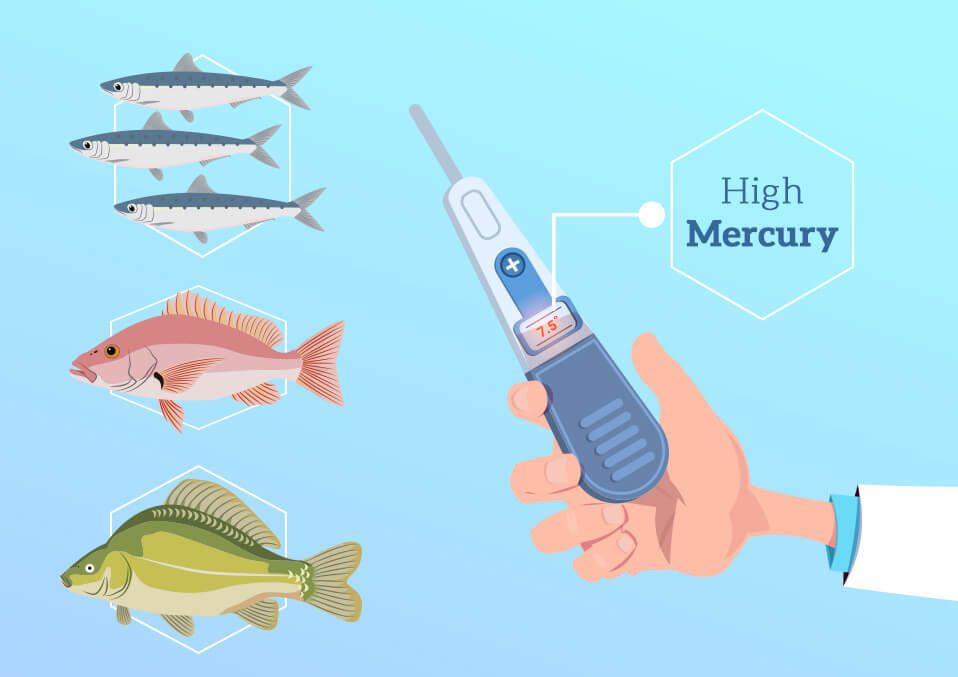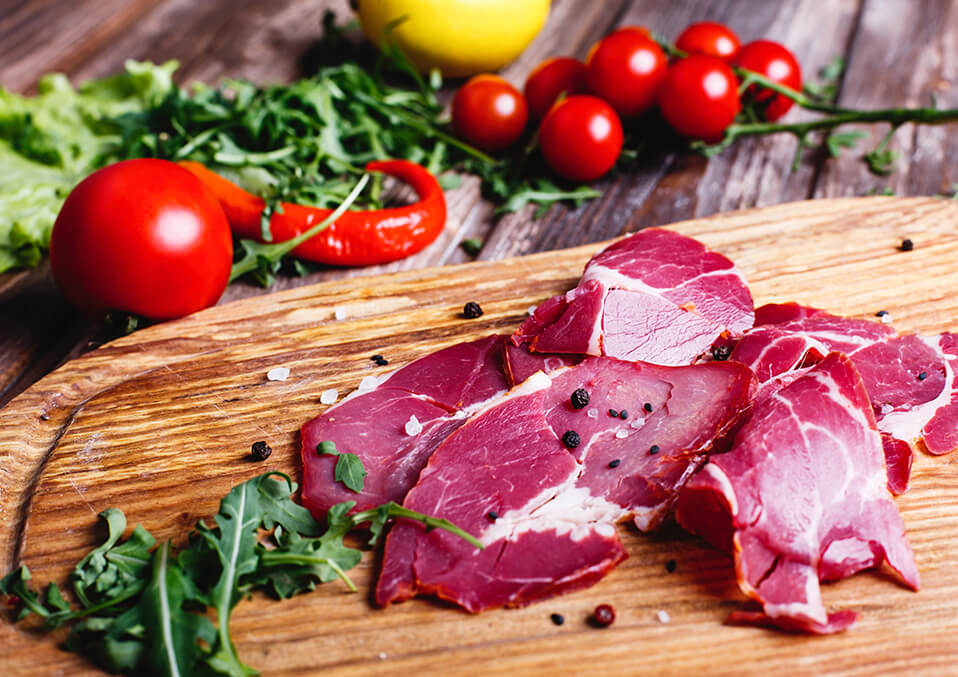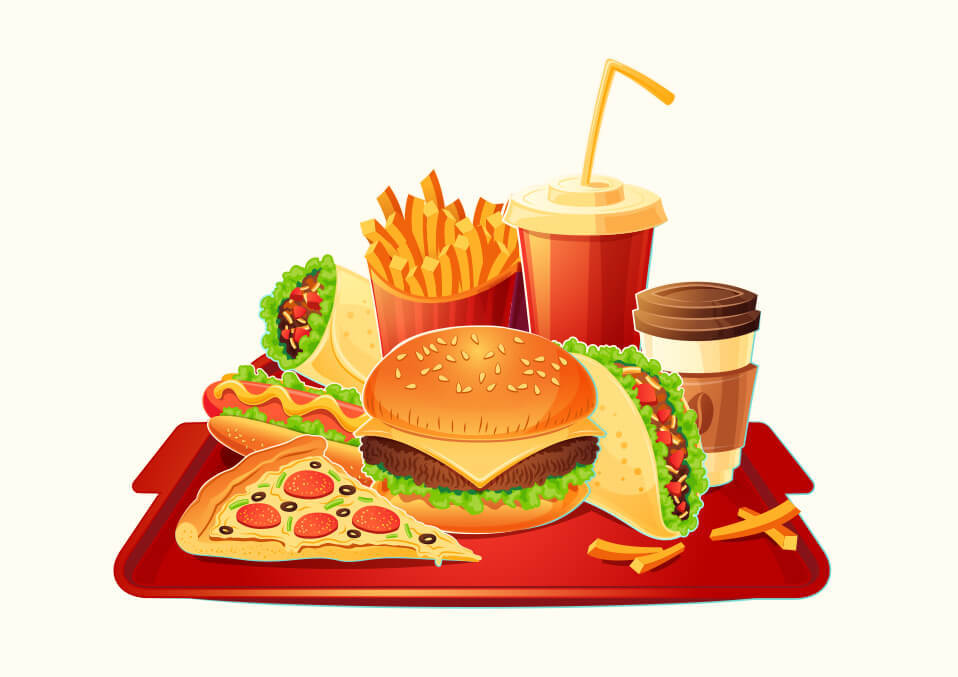We can say that pregnancy is one of the most sensitive periods in every woman’s life. Thus, a healthy diet for a pregnant woman is very essential.
Pregnant women should be very careful about what they eat and avoid harmful foods and drinks. Some foods are rarely consumed and others are completely avoided.
So what pregnant woman should not eat? In the next paragraphs we will introduce some foods and drinks that you should avoid or at least minimize during your pregnancy:
1. High-Mercury Fish.

Pregnant women should not eat fish with high mercury content more than once or twice a month. These include swordfish, sharks, mackerel, and tuna.
Mercury is a very toxic element. No safe exposure level is known and is most commonly found in contaminated waters. Large amounts can harm the immune system, nervous system, and also kidneys. It can lead to severe developmental issues in your baby.
Large marine fish can accumulate large amounts of mercury, as it is the case in polluted seas. Pregnant women are therefore advised to limit the intake of mercury-containing fish to a maximum of one or two meals per month.
High-mercury fish include: Shark, Swordfish, King mackerel, Tuna (especially albacore tuna), however, do not worry, all fish are not high in mercury, but some types.
Pregnant women should not consume fish so much during pregnancy because it may contain high levels of mercury. Otherwise, make sure to choose low mercury types.
2. Organ Meat.

The organs are excellent sources of iron, Vitamin B12, Vitamin A, and copper.
To prevent the toxic effects of vitamin A, doctors advise pregnant women to minimize their consumption of organs once per week.
Organ meat is an excellent source of many nutrients that are suitable for pregnant mothers and babies.
These include iron, Vitamin B12, Vitamin A. Excessive intake of Vitamin A (preformed Vitamin A) during pregnancy is not recommended.
This can cause Vitamin A toxicity, unusually high copper content, birth defects, and liver toxicity.
Pregnant women should, therefore, consume organ meat less than twice every week.
Read Also:
3. Caffeine.

As a pregnant woman, you should limit your caffeine intake to 200 mg of coffee every day, or about 2 to 3 cups of coffee. Taking so much caffeine during pregnancy can prevent your fetus’s growth and reduce birth weight.
Caffeine is the most used psychoactive substance in the world and is found highly in coffee, soft drinks, tea, and cocoa. Generally, it is better for pregnant women to reduce their caffeine intake to no more than 200 mg every day.
Caffeine is absorbed very quickly and crosses easily the placenta and reaches the fetus.
Unborn babies and their placenta can accumulate to a large extent because they do not have the most important enzymes required for the degradation of caffeine.
It has been shown that high caffeine intake during pregnancy limits the growth of the fetus and raises the risk of low birth weight.
Low birth weight, generally known as less than 5 pounds, 8 ounces (2.5 kg) is related to an increased risk for the baby mortality and an increased risk for chronic diseases of type 2 diabetes and heart disease in the adulthood of your baby.
4. Alcohol.

When you are pregnant you should not drink alcohol at all. Its consumption can increase the risk of abortion, stillbirth and fetal alcohol syndrome.
It is recommended that pregnant women avoid alcohol consumption entirely. This raises the risk of stillbirths and miscarriages. Even a little can affect your baby’s brain development.
It can also cause fetal alcohol syndrome, including facial deformities, heart defects, and mental retardation.
Tests did not prove yet that the concentration of alcohol is safe during pregnancy, so it is better to avoid it all at once.
5. Processed Junk Foods.

The consumption of junk food during pregnancy may increase the danger of extra weight gain, complications and pregnancy diabetes. This can have negative future effects on your child’s health.
Pregnant women need to increase the amount of many essential nutrients, including iron, folic, proteins, and acid.
The optimal diet during pregnancy should consist mainly of wholesome foods with many nutrients to meet the needs of mothers and the growing baby.
Junk Food is low in nutrients and contains high amounts of calories, sugar, and added fat.
Besides, sugar significantly raises the danger of processing some illnesses such as Type 2 Diabetes and sever heart illnesses.
Weight gain during pregnancy is necessary, but excessive weight gain is associated with many complications and diseases.
This includes an increased risk of pregnancy diabetes and complications associated with pregnancy or childbirth.
It also increases the risk of giving birth to overweight children. This leads to long-term health issues, as overweight children are much more likely to become overweight adults.
Hope this article helped you.
If you have any questions about what pregnant women should not eat or feedback do not hesitate to mention them in the comment section below, we will be so happy to help you.
Read Also:
- Can Pregnant Women Eat Crawfish?
- A Perfect Food Guide for Pregnant Ladies.
- What Are the Signs of Baby Teething And How To Soothe The Pain?
WOMEN STICK TOGETHER, SHARING IS CARING!


